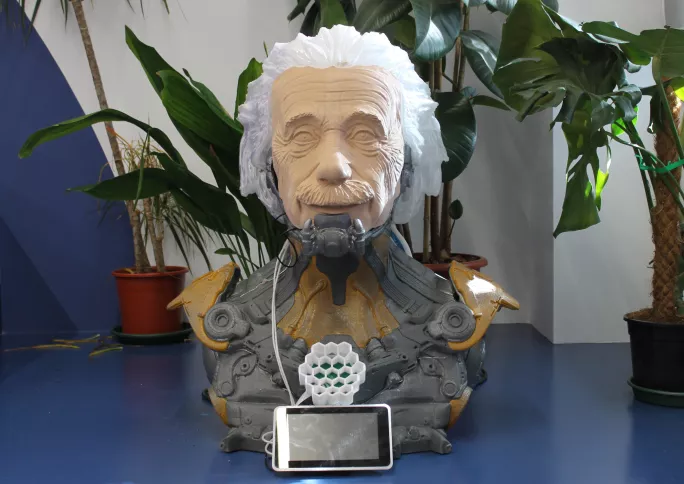Leading a global school group’s response to AI

Last year I was appointed head of artificial intelligence (AI) for the international schools group Globeducate. It’s a role that only a few years ago did not exist.
Now, though, I am overseeing how our network of 60 schools in 12 countries across four continents can harness the potential of AI in terms of both embracing its educational possibilities and safely navigating its risks.
It’s a situation many other schools and school groups, especially internationally, may recognise; a recent Council of British International Schools report revealed that a quarter of all international schools are teaching pupils how to use AI “responsibly and appropriately” and almost half have plans to do so in the future.
Understanding expertise
This certainly chimes with my experience since joining as I set about engaging with as many schools as possible for their views on AI - leaders, teachers, parents and, of course, pupils.
From this, it was clear that while there was excitement about its potential from many, there were also doubts and uncertainty, too, and so we needed to work to help upskill and educate all involved.
To do this, we set about launching an extensive training programme - including webinars for senior leadership teams and face-to-face workshops for school leaders, educators, parents and pupils.
These touched on everything from discussing the practical applications of generative AI and helping understand the real-world impact of these tools to new safeguarding concerns AI may pose and how to spot them.
Teacher training focus
We also set out plans to introduce a teacher AI literacy framework, which will take a phased approach to give teachers the confidence to start considering how they can integrate AI into education, starting with experimentation and moving towards an AI-first attitude.
This will form part of a wider AI certification pathway for all Globeducate staff that will be based on further courses and workshops, to help teachers feel confident in this area.
- AI at scale: How our 34-school trust is approaching AI education
- More: 6 AI tools to speed up your lesson planning
- Digital plan: How our trust has launched a 3-year digital road map
This work is also focused on senior leaders, too, who want to set the example of our “AI-first” attitude across the organisation, so they understand they have space to innovate around how AI is used, not just for teaching but also for automating administrative tasks in their school.
Pupil engagement
Meanwhile, for pupils, we are establishing AI Youth Councils at each school within the Globeducate network.
The idea is the councils will regularly meet with the school’s SLT to facilitate communication and collaboration in integrating technology into education, serving as a bridge between digitally native pupils and older generations.
The first task of the AI Youth Councils is to critically review and give feedback on our K-12 AI literacy curriculum, which has been designed to help educate pupils on their use of AI. The first meeting is slated for April in an online forum to discuss their inputs.
We are also keen to ensure teaching AI literacy does not just mean more time on screens.
One example we have given schools to do this is using role play games where pupils can act as an AI algorithm to help them understand how these systems operate.
This not only helps to demystify AI technology but also encourages critical thinking and helps pupils consider ethical dilemmas, biases in AI and the impact of AI on society - all skills that can help them in other subjects.
This approach not only fosters creativity but also instils critical thinking and ethical understanding from a young age, signalling a resurgence in the importance of arts and humanities in our increasingly AI-driven world and the importance of the “A” in Steam (science, technology, engineering, arts and maths).
Developing AI creativity
Building on this, we have also instigated our first Globeducate AI challenge for pupils called hi!ai, which will involve 12 schools building models of historical figures that are powered by AI to answer questions.
The information used to answer questions will be inputted by pupils so the figures can respond, helping them not just understand how to use AI technically, but also the literacy and ethical considerations when doing so.
We will then host a grand final where the 12 “heads” will come together in a virtual studio and interact with one another (see Einstein example below).

All this is not easy - it means being aware of new and emerging AI regulations in each territory we operate in, complying with laws and having oversight of how AI is being used, including the ever more ethical conundrums it may create.
Nonetheless, with the huge potential for AI, alongside the questions it poses, it is clear it is work we need to be grappling with right now so we stay ahead of the curve and allow teachers and pupils to propose as a result.
Clara Hawking is head of artificial intelligence at Globeducate
For the latest education news and analysis delivered directly to your inbox every weekday morning, sign up to the Tes Daily newsletter
You need a Tes subscription to read this article
Subscribe now to read this article and get other subscriber-only content:
- Unlimited access to all Tes magazine content
- Exclusive subscriber-only stories
- Award-winning email newsletters
Already a subscriber? Log in
You need a subscription to read this article
Subscribe now to read this article and get other subscriber-only content, including:
- Unlimited access to all Tes magazine content
- Exclusive subscriber-only stories
- Award-winning email newsletters
topics in this article



